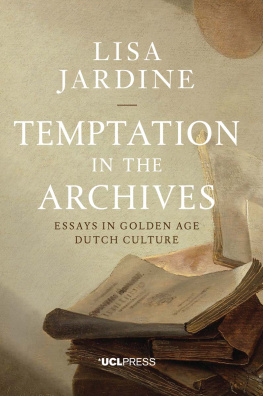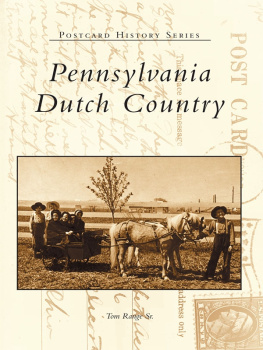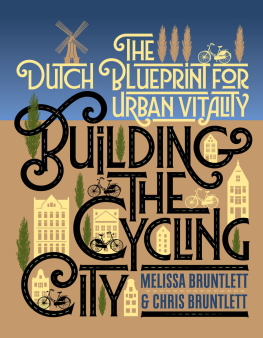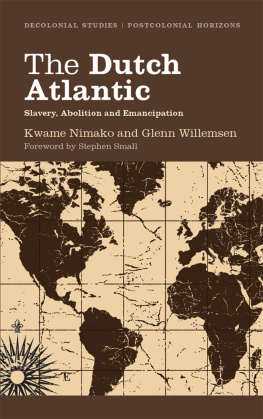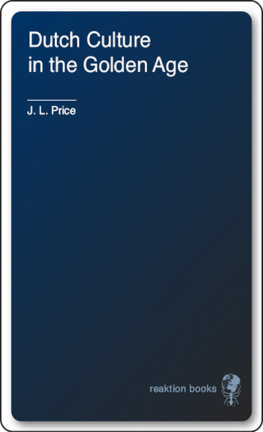Why the Dutch Are Different
For Kim, of course
Why the Dutch Are Different
A Journey into the Hidden Heart of the Netherlands
Ben Coates

First published by Nicholas Brealey Publishing in 2015
|
|---|
Carmelite House | Hachette Book Group |
50 Victoria Embankment | 53 State Street |
London EC4Y ODZ | Boston, MA 02109, USA |
Tel: 020 3122 6000 | Tel: (617) 523-3801 |
www.nicholasbrealey.com
Ben Coates 2015
The right of Ben Coates to be identified as the author of this work has been asserted in accordance with the Copyright, Designs and Patents Act 1988.
ISBN: 978-1-85788-633-7
eISBN: 978-1-47364-529-5
British Library Cataloguing in Publication Data
A catalogue record for this book is available from the British Library.
All rights reserved. No part of this publication may be reproduced, stored in a retrieval system, or transmitted, in any form or by any means, electronic, mechanical, photocopying, recording and/or otherwise without the prior written permission of the publishers. This book may not be lent, resold, hired out or otherwise disposed of by way of trade in any form, binding or cover other than that in which it is published, without the prior consent of the publishers.
Printed in the UK by Clays Ltd, St Ives plc.
Contents

The Netherlands
Preface
The Queen had resigned, and it was the new Kings first day at work. Amsterdam was ablaze with colour, the citys narrow brick streets flooded with an estimated one million people celebrating the inauguration of the first King of the Netherlands in more than a hundred years. The concentric canals were gridlocked with small boats, many of them in danger of sinking under the weight of the scores of people drinking and dancing on board.
It was April 2013 and the Dutch capital had been hit by a serious outbreak of what the locals called oranjekoorts, or orange fever, a non-fatal disease whose chief symptom was the urge to cover oneself from head to toe in bright orange clothing. The choice of colour was a tribute to the Royal House of Orange, itself named after the small French town of Orange over which its members had once ruled. Orange banners floated from the windows of the slender canal houses, orange bunting spanned the crooked alleyways and orange balloons hung from the tilting iron lampposts. The cobbled floor was littered with discarded orange wigs, hats and miniature flags. Babies wore orange face paint and a barking dog sported an orange hat, coat and miniature feather boa. Wearing an orange T-shirt emblazoned IK HOU VAN HOLLAND (I love Holland), an orange top hat and orange sunglasses, I felt I hadnt really made enough of an effort.
In Dam Square, site of the dam on the river Amstel that gave the city its name, some 25,000 people had gathered to watch the retiring Queen Beatrix hand the family business to her son, the new King Willem-Alexander. At one end of the square, the six-storey Royal Palace was draped with Dutch tricolour flags, the golden railings of its first-floor balcony laced with orange flowers. In front of the palace was a vast crowd of well-wishers, many of them dressed in orange fur-trimmed capes and inflatable crowns. Necks craning and cameras held high, they strained for a view of the minor royals and celebrities walking to the palace from the ancient Nieuwe Kerk (New Church) where the King had just been formally approved by the Dutch parliament. The UKs Prince Charles sweated his way across the cobbles under a mass of gold braid and medals; Ghanas Kofi Annan grinned and waved to the cheering crowd.
Queen Beatrix had announced her intention to step down a few months previously, after thirty-three years on the throne. It was, she said, time for the crown to pass to a new generation. Now, appearing on the palace balcony above the square, the nations kindly grandmother looked close to tears. Some moments ago I abdicated from the throne, she told the tangoed masses in Dutch, a light breeze ruffling her dark purple dress. I am happy and grateful to introduce you to your new King, Willem-Alexander. The national anthem began to play, and the former Queen stood back from the balcony. The new King stepped forward, ruddy as a farmer in his dark suit and pale tie, flanked by his wife Maxima, an Argentinian beauty who had shaken off her past as a junta leaders daughter to win millions of Dutch hearts. Next to the royal couple stood their three cherubic daughters, visibly nervous but as pretty as Disney princesses in their matching yellow dresses. They waved to the tangerine crowd, and applause rippled through the city like thunder.
My own journey to Dam Square had begun some three years previously, more than five thousand miles away in the Caribbean. Until 2010, I had worked in London as a kind of low-rent political hitman, crafting snide talking points and tub-thumping speeches for ambitious politicians, skilfully misrepresenting opponents and raking over expense claims to force the resignation of otherwise competent cabinet ministers. It was the kind of job that guaranteed invitations to cocktail parties and impressed girls in bars, and I didnt like it at all. When a national election and coalition agreement put my jubilant former colleagues in power, I found myself faced with a choice. I could either angle for work carrying a ministers bags around expensively catered international summits, or I could submit to the lucrative PowerPoint grind of a corporate lobbying job. After mulling over my options for an afternoon, I did what any sensible person would: I booked a one-way flight to Cuba.
By September that year, I was on a battered forty-foot sailing boat off the coast of Belize, in possession of little more than an oaky tan and the kind of beard that guaranteed a strip search at airports. The vessels dreadlocked crew were more interested in listening to reggae than in actually sailing anywhere, and time had collapsed into a blissfully monotonous cycle of drinking rum punch, swimming with turtles and broiling gently in the sun. The House of Commons seemed a long way away.
The few other passengers on board included a pair of sunburned English girls celebrating their graduation and making plans to save the world, and four sunburned Dutch cousins with backpacks, boisterous and over-friendly in the way that tall people released from a small country usually were. Bored of the rum and the turtles, I struck up a conversation with the only girl in the Dutch group, a skinny blonde with salty hair, a starfish-patterned bikini and eyes the colour of the sea. We discussed nothing memorable, but when she disembarked that evening I somehow convinced her to leave behind her email address, scrawled on the back of a Cubana Airlines ticket stub.
Several months passed in a haze of beer, beaches and bus rides, and I had all but forgotten about the girl on the boat until a series of agitated messages from my bank indicated it was time to find a new job. Unfortunately, the plane carrying me back to Heathrow met with a sudden snowstorm and was diverted to Amsterdam. With all flights cancelled, an unkind security guard kicked me out of Schiphol airport and I trudged through thick snow to a series of hotels, each overcrowded with other stranded passengers. Shivering in a T-shirt and cotton trousers better suited to Caribbean climes, I was seriously contemplating sleeping in a subway station when I remembered that I did, in fact, know someone who lived in the Netherlands. Kneeling by a frozen canal, I dug a sun-bleached ticket stub from the bottom of my backpack and sent a message to the skinny girl asking if shed like to meet for dinner. She invited me round to her place in Rotterdam that evening, and I never left.
Next page

